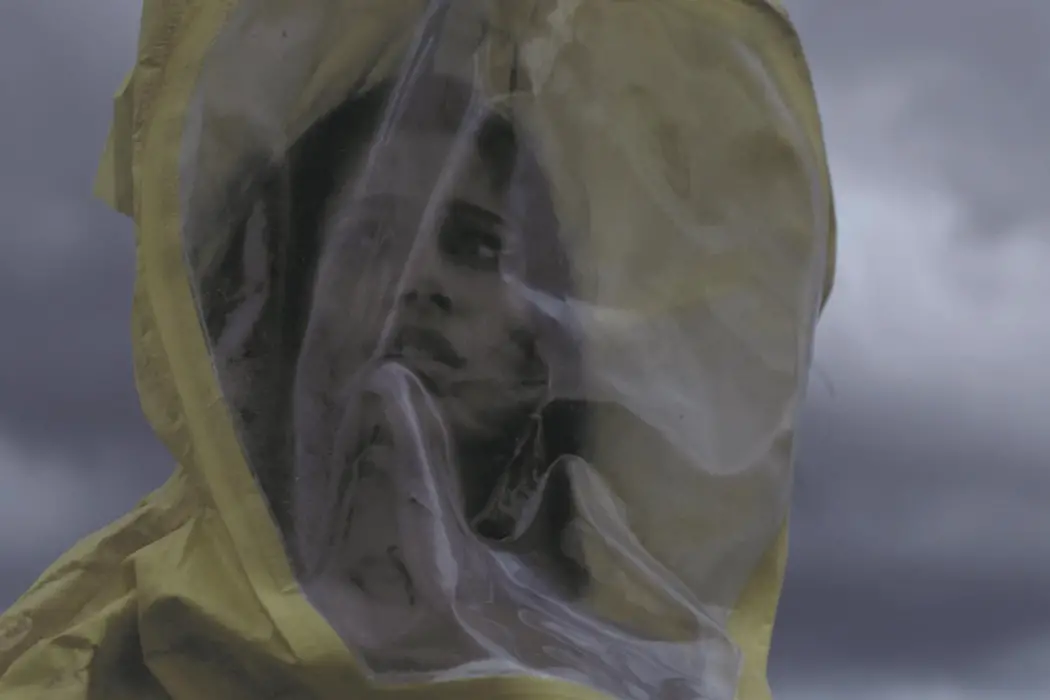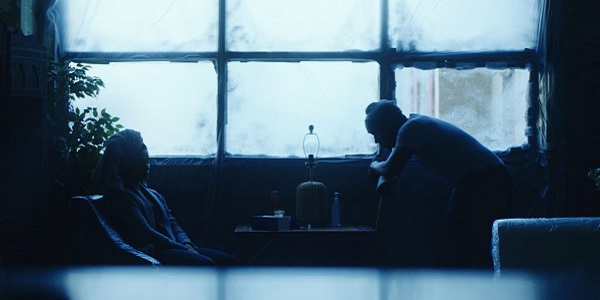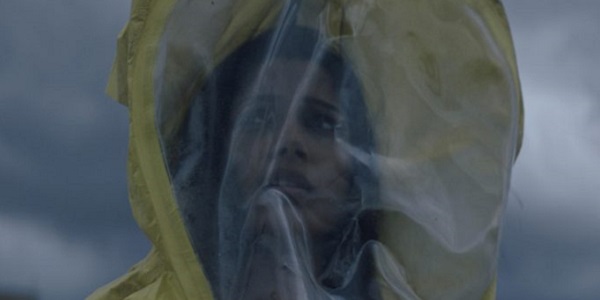Tribeca Film Festival 2019 Review: ONLY

Lee Jutton has directed short films starring a killer toaster,…
The struggle to survive post-apocalypse has always been a popular cinematic subject, but it seems to be all the more prevalent today. It’s not surprising; everywhere we look, we see stories about wars raging, the environment dying, and governments repressing their own people. It’s all too easy to subscribe to a negative view of our future and to consume entertainment warning us of what it could be like if that future comes to pass.
This year’s Tribeca Film Festival boasted its own addition to this cinematic tradition: Only, the sophomore feature from writer-director Takashi Doscher (Still). The film tells the story of a young couple, played by Leslie Odom Jr. (Murder on the Orient Express) and Freida Pinto (Slumdog Millionaire), whose love story is abruptly interrupted by a mysterious plague that affects only women. But don’t expect a post-apocalyptic movie in the Mad Max mold; Only is a slow-burn of a story that relies more on atmosphere than action, with mixed results.
The Only Woman in the World
Eva (Pinto) and Will (Odom Jr.) are getting ready to move in together, but a romantic evening is interrupted when Eva’s current roommate, Carolyn, staggers into the room and collapses onto the floor. Eva and Will rush her to the hospital only to find the emergency room crowded with other women suffering from the same symptoms, including seizures and haemorrhaging. Will, thinking quickly, steals hazmat suits for the two of them and rushes Eva home, where he begins methodically sealing off their apartment to quarantine Eva for her own safety.

It is revealed that a mysterious ash fall from a passing comet has spread a plague that only affects women. Men can carry the illness, and pass it on to women, but they cannot sicken and die the way women can. Soon, millions are dead, and the few women left alive are subject to government testing that borders on persecution in a desperate effort to repopulate the world. Paranoid that Eva will get captured by the government, or worse, get sick and die, Will puts a series of strict rules and rituals in place to ensure her safety. But as days turn into weeks and months of imprisonment, Eva grows increasingly desperate to reclaim her freedom — at any cost.
Freedom vs. Survival
The idea of a future in which the few remaining women are valued only for their ability to repopulate the world doesn’t seem that far-fetched today, which gives Only an undercurrent of terror guaranteed to impact any woman who watches it. However, the plague scenario itself was one I found myself incapable of buying into, mostly because of its reliance on a comet, of all things, as the cause. It’s an absurd concept that clashes sharply with the film’s surprisingly realistic emotional center.
As Eva, Pinto is excellent, even if watching this beautiful woman attempt to disguise herself as a man to go outside without cutting off her long shiny hair or growing in her perfectly groomed eyebrows adds to the absurdity. Eva’s gradual descent into near-madness as a result of her quarantine is frighteningly relatable. Her one source of solace is a secret chat room where she can communicate with other surviving women, yet each time she logs on, there are fewer and fewer left, as the other women are either taken by the government or struck down by the plague. To watch these numbers gradually dwindle on her computer screen is to be sucked into Eva’s increasingly small world, and to feel just as claustrophobic as she does in it.

As time goes by, Eva begins to view Will as more of a jailer than a lover; his extreme efforts to keep her safe incite more fury than gratitude. To watch this devolution of their relationship is to feel your heart slowly break. Odom Jr. has the less-showy role but still shines as the well-meaning Will, the kind of man who is willing to never touch the woman he loves again in order to keep her alive. Unfortunately, the supporting characters, including Chandler Riggs of The Walking Dead fame as a young man on the road with his father, are little more than ciphers and don’t really serve much of a purpose but to remind you — as all post-apocalyptic thrillers do — that when the going gets tough, humans will throw anyone else to the wolves for the sake of their own survival.
The use of non-sequential storytelling in Only allows Doscher to seesaw between the beginning of the crisis, when Eva and Will are still figuring out how to live in this strange new world, and the impending end, as Eva and Will make a mad dash to see a beautiful waterfall from their past one last time. The latter scenes are derivative and difficult to connect with compared to the moments between Eva and Will alone in their apartment, in part because the other characters they encounter are lacking in interest but mostly because we’ve seen this kind of road trip through the wasteland so many times before. Only is at its most engaging and original when it focuses on the couple’s emotional journey — not their physical one.
Only: Conclusion
There is much to admire about Only, but in the end, I was left wanting more. The film has a rich internal life, but it flounders when it is forced to step out of Eva and Will’s heads and hearts and into the outside world.
What do you think? Does Only sound like an intriguing take on the post-apocalyptic survival scenario? Share your thoughts in the comments below.
Does content like this matter to you?
Become a Member and support film journalism. Unlock access to all of Film Inquiry`s great articles. Join a community of like-minded readers who are passionate about cinema - get access to our private members Network, give back to independent filmmakers, and more.
Lee Jutton has directed short films starring a killer toaster, a killer Christmas tree, and a not-killer leopard. Her writing has appeared in publications such as Film School Rejects, Bitch: A Feminist Response to Pop Culture, Bitch Flicks, TV Fanatic, and Just Press Play. When not watching, making, or writing about films, she can usually be found on Twitter obsessing over soccer, BTS, and her cat.













